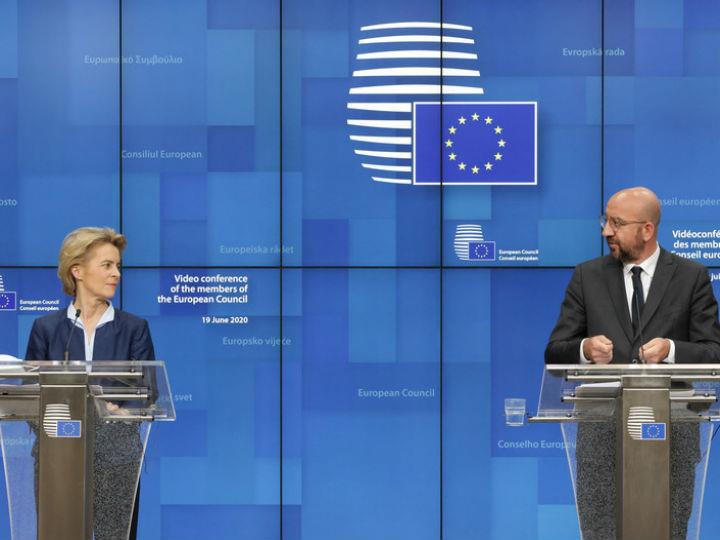by N. Peter Kramer
Last Friday the 27 EU leaders had a four-and-a-half-hour virtual summit that exposed many serious divisions. Criticisms were made as they held their first detailed discussions on the EU recovery plan worth €750 billion and the €1.1 trillion multi-annual financial framework (MFF) for 2021-2027. The summit laid bare a host of unresolved issues that will need to be resolved if a consensus is to be reached next month when the European Council will meet in person in Brussels.
That means tough negotiations over the main elements of the MFF and the recovery plan, the centrepiece of the EU’s collective economic response to the pandemic. European Council President Charles Michel promised to make some fresh proposals before the July summit but said ‘on some topics it remains very complex and very difficult to find consensus’.
Member states are at odds on many points. They not only haggled over how the money of the recovery fund was parcelled out, there were also differences on the size of the recovery fund, the balance between grants and loans, the size of the MFF and the fate of so-called rebates that some counties get on their contributions. Many member states have bridled as the commission proposed them to consider handling over new revenue streams to the commission, which would allow it to repay the hundreds of billions it would borrow to fund the recovery package.
One of the most controversial points is the handing out of the recovery budget money in loans or in grants. Member states as Italy, Spain and France are counting on grants, loans will worsen their already high national debts from the pre-Corona era. Denmark, the Netherlands, Austria and Sweden have so far opposed handing out in grants. Spain and Italy will receive an enormous proportion of the aid, other member states who managed the crisis better, such as Croatia, Romania and Hungary, stand to benefit more than some of those in western Europe.
The original idea for the recovery plan came from French President Macron and German Chancellor Merkel. It was similar to what the commission later set out. However with the EU wrestling over economic differences between north and south, and about migration and rule-of-law standards between east and west, the emerging consensus among Berlin, Paris and the Commission looks insufficient to guarantee a swift agreement.






